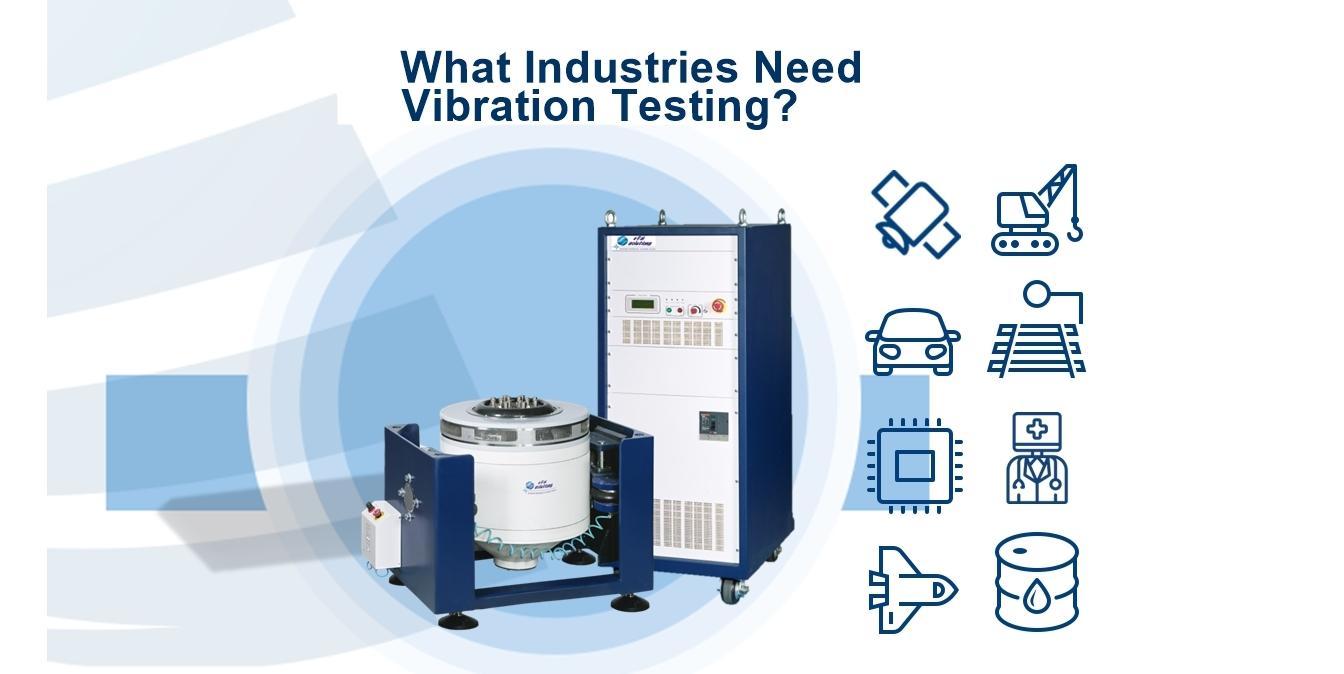What industries require vibration testing?
Vibration testing is a crucial process in various industries to ensure that the products or components being manufactured can withstand the stresses and strains of real-world environments. The testing helps to identify potential design flaws and weaknesses, reduce the risk of premature failure or malfunctioning, and improve the durability and reliability of the products or components being manufactured. Some of the industries that require vibration testing include:
Aerospace and Defence Industry: The aerospace and defence industry relies heavily on vibration testing to ensure that critical components such as engines, avionics, and guidance systems can withstand the harsh conditions of flight. Vibration testing is used to simulate the vibrations and shocks experienced during take-off, landing, and in-flight conditions. It is essential to ensure that the components can function properly without failure or malfunctioning, which could lead to catastrophic consequences.
Automotive Industry: The automotive industry uses vibration testing to assess the durability and reliability of vehicle components such as suspension systems, engines, and transmissions, batteries, electronics drives and instrumentation. Vibration testing is used to simulate the vibrations and shocks experienced during normal driving conditions and to identify potential design flaws and weaknesses that could lead to premature failure. It is also used to improve passenger comfort through testing for NVH Noise, Vibration and Harshness and for S&R Squeak & Rattle testing.
Consumer Electronics Industry: The consumer electronics industry relies on vibration testing to ensure that products such as smartphones, laptops, and tablets can withstand the rigors of daily use. Vibration testing is used to simulate the vibrations and shocks that these products may experience during shipping, handling, and usage. This testing helps to identify potential design flaws and weaknesses that could lead to premature failure or malfunctioning.
Medical Device Industry: The medical device industry uses vibration testing to ensure that products such as implants, surgical instruments, and medical equipment can withstand the stresses and strains of daily use. Vibration testing is used to simulate the vibrations and shocks experienced during transportation, handling, and use of medical devices. It helps to identify potential design flaws and weaknesses that could lead to premature failure, malfunctioning, or even injury to the patient.
Heavy Equipment Industry: The heavy equipment industry uses vibration testing to ensure that components such as engines, transmissions, and hydraulic systems can withstand the shocks and vibrations experienced during heavy-duty operations. Vibration testing is used to identify potential design flaws and weaknesses that could lead to premature failure, resulting in costly downtime and repairs.
Power Generation Industry: Vibration testing is crucial in the power generation industry to evaluate turbines, generators, and rotating machinery for structural integrity, operational performance, and potential issues like imbalances or misalignments. By monitoring vibrations, abnormalities in bearings, shafts, and other components can be detected, enabling predictive maintenance and minimising downtime. Vibration testing is also applied to transformers, switchgear, and power plant structures to verify their integrity, prevent failures, and comply with safety standards.
Rail Industry: Rail transportation involves moving vehicles at high speeds, carrying passengers or valuable cargo. Rail systems are subject to constant wear and tear due to heavy loads, dynamic forces, and environmental factors. Vibration testing helps ensure the safety and reliability of rail systems by evaluating the structural integrity and performance of various components, such as rails, tracks, bridges, rolling stock, and signaling equipment. By subjecting these components to controlled vibrations, engineers can identify potential weaknesses, resonance issues, or failures that could compromise safety.
In conclusion, vibration testing is a critical process that is required across mulitple industries to ensure that products or components can withstand the stresses and strains of real-world environments. The testing helps to identify potential design flaws and weaknesses, reduce the risk of premature failure or malfunctioning, and improve the durability and reliability of the products or components being manufactured.

